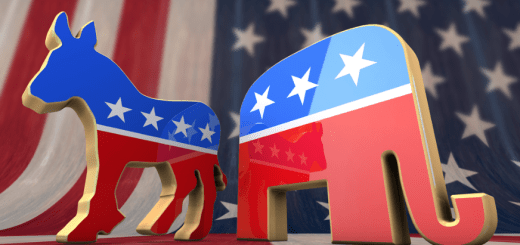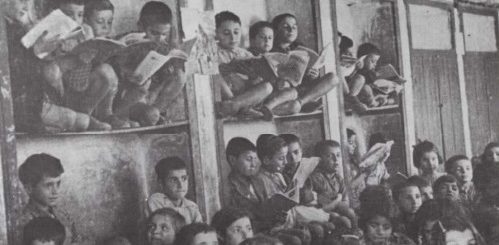Tight US Presidential Race: Good News for Armenian-Americans
Now that the two major political parties have begun holding Primaries to select their nominees for this fall’s Presidential elections, Armenian-Americans are weighing the merits of the eight remaining candidates.
I would like to propose that from now on Armenians refrain from asking presidential candidates whether they would recognize the Armenian Genocide once elected. There are two problems in posing such a question:
1) Armenians should know from previous disappointing experiences that they cannot trust promises made by most politicians.
2) There is no need to ask for such a promise since the Armenian Genocide has been repeatedly recognized by the various branches of the US government for many years:
a) Document submitted by the US government to the World Court in 1951;
b) Resolutions adopted by the House of Representatives in 1975 and 1984;
c) Pres. Reagan’s Proclamation referring to the Armenian Genocide on April 22, 1981.
Furthermore, the continued pursuit of genocide recognition — when it has been already recognized — would simply undermine its acknowledgment and cast doubt on it veracity.
Instead, Armenian-Americans should ask presidential candidates for their positions on more pressing issues such as:
1) Allocating more foreign aid to Armenia and Artsakh (Karabagh);
2) Promoting US trade with Armenia;
3) Pressuring Turkey to lift its blockade of Armenia;
4) Demanding that Turkey return the confiscated Armenian churches to the Armenian Patriarchate of Istanbul;
5) Condemning Azerbaijan for its repeated threats and attacks on Armenia and Artsakh;
6) Supporting the independence of Artsakh.
Once elected, officials would want to satisfy some of these demands in order to maintain the support of the Armenian community during their future campaign for reelection.
Here are the records of all six Republican presidential candidates on Armenian issues:
Gov. Jeb Bush (Florida)
— Travelled with his son on a humanitarian mission to Armenia on Dec. 24, 1988, shortly after the earthquake;
— Issued an Armenian Genocide proclamation on April 7, 2006;
— Received the Friend of Armenians Award in 2013 from the Eastern Diocese of the Armenian Church.
Gov. John Kasich (Ohio)
— Received ratings of C, D, and F from ANCA during most of his tenure in the House of Representatives, 1983-2001;
— Cosigned letters to Pres. Bush and Soviet leader Mikhail Gorbachev supporting Artsakh’s independence in 1991;
— Cosponsored the Armenian Genocide Resolution in 2000;
— As Governor, issued a proclamation in 2012 to celebrate Armenian Independence Day.
Sen. Ted Cruz (Texas)
— Received a C- rating from ANCA in 2014;
— In 2015, issued statement on the Armenian Genocide and cosponsored the Armenian Genocide Resolution.
Sen. Marco Rubio (Florida)
— Received a C rating in 2012 and B in 2014 from ANCA;
— Voted for passage of the Armenian Genocide Resolution in the Senate Foreign Relations Committee in 2014;
— Cosponsored the Armenian Genocide Resolution in 2015;
— Cosigned letter to Pres. Obama urging him to recognize the Armenian Genocide in 2015.
Neurosurgeon Ben Carson (Michigan): No statements on Armenian issues.
Businessman Donald Trump (New York): No statements on Armenian issues.
Here are the records of the two Democratic presidential candidates on Armenian issues:
Secretary of State Hillary Clinton (New York)
— As Senator, cosigned letters to Pres. Bush urging him to recognize the Armenian Genocide in 2005 and 2006;
— Cosponsored Resolutions on the Armenian Genocide in 2006 and 2007;
— As Presidential candidate in 2008, made a promise to recognize the Armenian Genocide;
— Later in 2008, spoke at a Turkish Cultural Center banquet in New York City in the presence of then Prime Minister Erdogan;
— During an official visit to Yerevan in 2010, placed a wreath at the Genocide Monument, which the US Embassy in Armenia called a “private” act, even though the ribbon on the wreath carried the inscription: “From Secretary of State Hillary Rodham Clinton”;
— In 2012, as Secretary of State, referred to the Armenian Genocide as “a matter of historical debate,” contradicting her earlier clear stand on this important issue.
Sen. Bernie Sanders (Vermont)
— Received an A+ rating in 2012 and C in 2014 from ANCA;
— During his tenure in the House of Representatives (1991-2007), he supported a variety of Armenian issues, including the Genocide Resolution, in 1996, 1997, and 2000;
— Cosigned letters to Pres. Bush urging him to recognize the Armenian Genocide in 2002, 2003, and 2004;
— As Senator, he cosponsored in 2012 two Resolutions on the Armenian Genocide and Return of Armenian Churches by Turkey.
The polls and results of the early Primary elections indicate that no candidate in either party is likely to have an overwhelming majority in the Primaries and the November elections which would encourage the candidates to be more accommodating to all voters, including Armenian-Americans.
Under these circumstances, my suggestion to the Armenian-American community is to refrain from making an early commitment to any candidate. The decision as to whom to support can be made later as the presidential race gets tighter and the candidates get more desperate for votes!







